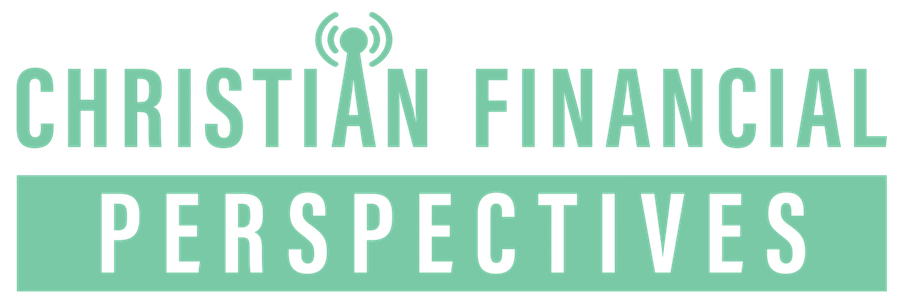Click below to listen to Episode 105 – New Year’s Resolutions, Goals, and Targets
Subscribe: Apple Podcasts | Spotify | Amazon Music | RSS | More
New Year’s Resolutions, Goals, and Targets
The new year is a time for new beginnings. Most of us take the opportunity of a new beginning to make life changes and goals (about 60% of us), but many never succeed in forming these new habits. What is holding us back? Is it fear of failure or just forgetfulness? Is it indifference or complacency? What can help us be more successful in achieving these goals?
Bob and Shawn discuss writing down goals and other methodologies (like the SMAC method – Specific, Measurable, Achievable, and Compatible) to help you be more successful in obtaining your personal goals for the year. Writing down a goal/having a list makes you about 10x more likely to succeed. Not only does writing down a goal put things into perspective, but it also allows you to have a more clearly defined picture of what you want for the future.
HOSTED BY: Bob Barber, CWS®, CKA®
CO-HOST: Shawn Peters
Mentioned In This Episode
Want to ask a question about your specific situation? Schedule a complimentary 15 minute phone call.
Did you enjoy this episode? Sign up for email updates and never miss an episode.
EPISODE TRANSCRIPT
[INTRODUCTION]
Welcome to “Christian Financial Perspectives”, where you’re invited to gain insight, wisdom and knowledge about how Christians integrate their faith, life and finances with a Biblical Worldview. Here’s your host Christian Investment Advisor, Financial Planner, and Coach, Bob Barber.
[EPISODE]
Bob:
Welcome to our 105th podcast for Christian Financial Perspectives and our first podcast of 2022. I hope you had a very Merry Christmas and a happy new year, and we are going to be coming at you with some great information this year. Cause I want you to live this year with intention on purpose. I don’t want you to go through 2022 just living a life of mediocrity and just going from day to day, but living each day with purpose in what God has for your life. And that’s what we’re gonna talk today about. We’re gonna talk about hitting those new year’s resolutions, goals, and targets.
Shawn:
And it’s hard to believe we’re in 2022. We had a crazy year last year, 2021, it seemed like.
Bob:
It is. I’m kind of ready to move forward, Shawn. I hope that COVID is about done. I’m ready to get on with life and I believe that many others, millions around world, are ready for that too. They’re ready to be able to get back together and give each other hugs and high fives and have parties together and not worry about getting COVID.
Shawn:
Yeah, I agree. I think people are still hoping that this can be considered no longer a pandemic, but I think the word endemic is what they call it, where it’s more of like the flu. Each year the flu, there’s a bunch of different strains and of course you wanna try to protect yourself from it, but it’s just kind of business as usual to an extent. Well, we’ve got a top 10 new year’s resolutions list and this is something that people set over and over again, it was from a bunch of surveys and polls that were done. And this is in order of importance or at least the number of people who said yes. This is one of their’s.
Bob:
The top one, that first one you’re gonna mention, is gonna be the most important one.
Shawn:
Eat healthier.
Bob:
I can raise my hand to that one. I definitely want to eat healthier, especially after coming off of Christmas, right. Just all those cookies and sweets and high fat things.
Shawn:
Well, it’s all the fun Christmas stuff. And then number two is get more exercise. The first three were actually tied as far as the percentage of respondents that said that that was something that they wanted to do. And then we’ve got another one – save money or save more money, always a pretty popular one. I’m gonna manage my budget this year. And then you’ve got focus on self care. Could obviously mean a lot of different things. That’s kinda the general category.
Bob:
Kind of goes along that line of get more exercise, and eat right.
Shawn:
Yeah. Or maybe it’s just, Hey, I’m gonna take a little me time everyone once in a while and de-stres. So another one is read more, always a good one.
Bob:
I’m kind of surprised by that one, but I’m glad to see that because…
Shawn:
It may not necessarily be a paper book. It may still be a digital reader of some kind.
Bob:
That’s true, but some are on their iPhones so much and media, reading, I believe, has become a lost art and I’m glad to see that that’s in the top five, actually.
Shawn:
I really like the reading. If you’re not gonna read on a paperback, at least if you have something that’s one of those E-Ink kind of a screen because it doesn’t make your eyes tired. And it reads more like a real book, which is definitely nice. Another one is learn a new skill. Definitely can see that as being popular, even more so probably this past year with so many people working from home, it’s like, well, I need to learn new skill. Maybe I can find a job I can work from home.
Bob:
Learn a new skill, especially with what plumbers and electricians charge, at least here in Central Texas, just to show up. They’re like, that’d be $200 or $300 if I just show up at your front door. So, learn how to do some of those things.
Shawn:
So maybe learn how to do plumbing or electrical work. On the electrical work, I would definitely say, make sure you go through something that’s accredited. Don’t try to mess with the electricity on your own. Just a little disclaimer there.
Bob:
There are some things I will always hire out. One of those is always if our metal roof needs fixing, I’m not getting up there, no matter what they charge, it’s gonna be cheaper than the hospital bill.
Shawn:
I agree. I’m the same way. I’m only in my thirties, but I’m not gonna try to replace a roof. So another one would be, make new friends. Definitely can understand that one. Sometimes, it’s hard to make new friends. Get a job or get a new job. No, Bob I’m not one of those looking for that one. We’re good.
Bob:
And we’re down nearly to the end, too. So I’m glad to hear that one.
Shawn:
Take up a new hobby and also focus more on relationships.
Bob:
So that’s the top 10. I’m glad to see that one too, the focus more on relationships. Those relationships with our family members, especially. So researchers say about 60% of us make these new year’s resolutions, Shawn, but only 8% are actually successful in achieving them. Why is that? Why is it every year we make these resolutions, but only 8% are successful in achieving them?
Shawn:
I’m glad you asked Bob. Cause I kind of have the answer. It helps when you can write things down, right? So, a famous Harvard business school study from years ago found that 83 out of 100 people do not have any clearly defined goals or a target to aim at – 83 out of 100. Then we have of the 17 people left that did have some goals, only 3 out of 100 – only 3 of them actually ever wrote down their goals on a sheet of paper.
Bob:
The key we’re gonna find, right, is writing those down on paper.
Shawn:
That’s a little foreshadowing. So, when Harvard concluded the study, the 3 out of the 100 people that had written goals were earning 10 times the income of the 83 people that didn’t have any written goals. And they tended to be in both better health and have happier marriages.
Bob:
Wow. I know. They had 10 times.
Shawn:
That’s crazy.
Bob:
Yeah. That’s why it’s so important that we need to write down a goal and have a target. Speaking of a target, not Target the store, but like a target…
Shawn:
Like something you’re going to aim for.
Bob:
Yeah. Something you’re gonna aim for or goal. So Shawn, I’m gonna set you up with a question. What’s the first thing that you have to do when you want to hit a target?
Shawn:
Well, first thing I think of when I have to hit a target is to take aim, whether it’s a firearm or bow or something in my life, take aim and get ready.
Bob:
You’re absolutely right. You do. You have to aim with the target, but there’s something you have to do before that. Am I setting you up?
Shawn:
Sounds like you’re setting me up a little bit.
Bob:
You gotta have the target. You gotta go put the target out there. You gotta put that target out there 40 or 50 yards that you’re gonna aim that bow and arrow at to hit it, right, or the gun.
Shawn:
So maybe if I went to the gun range, I don’t just start shooting, but I’ve gotta use that little arm thing that you put the target on and then just send it out however far you want. Yeah. That’s fair.
Bob:
You gotta have the target to aim for. So if you don’t have the target to aim for in the first place, you’re just shooting off into nowhere.
Shawn:
That’s a really good point. So, speaking of setting those targets, Bob, I know there are many different target and goal setting methodologies. So do you think maybe you could share a little bit on those?
Bob:
I wanna share one I have personally used for many years, and it’s proven to be very effective in helping me to hit my goals and targets. And this goal system is called the SMAC method. S-M-A-C and it’s an acronym. So each one of those means something. The S in SMAC means “specific” – setting your goals and target specifically for you personally, not what someone else wants, but what you want personally. The M in SMAC means “measurable”. That’s where you set those goals that you can measure them along the way as it’s going to hit that target. So don’t think of it like when you’re going to the hunting range or shooting range, that you’re just gonna hit that target immediately, it could take awhile. So we’ve got specific and measurable. That A in SMAC means “achievable”. Aiming high is good, but not so high that it’s impossible to reasonably reach your goal. Cause what you’re doing, if you do that, you’re setting yourself up for disappointment.
Shawn:
So if you just started at the gun range and you say, I wanna be able to shoot this target at a thousand yards, maybe set your goal a little bit lower cause maybe that’s not achievable.
Bob:
If you’ve never done it, just set it up at 30 yards.
Shawn:
Exactly. So setting those achievable goals.
Bob:
And the C in SMAC the last means “compatible”. In other words, set goals and targets that are compatible with your values, your beliefs, and that you can physically hit and mentally hit. Yeah. I mean, I physically, I could say I wanna set a goal of running a 100 yard dash in nine seconds. That is an unreasonable goal for me. It’s not achievable, not at nearly 60 years old. I’ll be 60 in June. It’s not compatible. So to set something like that, I’m setting myself up for failure. So when I say specific, that means being very specific with your goals over the years and putting them in writing, as we mentioned. The key to this is you gotta put ’em in writing and I’ve reached nearly 100% of my goals over time.
Shawn:
So instead of having something like, I want to eat healthier. Sure. That’s a goal, but I guess the issue with that is it’s not specific. It’s pretty vague. Eat healthier. What does that mean? Does that mean eating half as much cake you normally do? Does that mean going vegan? What does that really mean, right? That wouldn’t really fit the SMAC method by saying, I want to eat healthier. It’s like, okay, well, what does that mean? Maybe it means I want to start following the macro diet or the paleo diet.
Bob:
Or maybe that means I’m not going to put sugar in my tea. I’m my Southern boy. I love my sweet tea.
Shawn:
You like a little bit of tea with your sugar?
Bob:
I love my coconut cake. Saying that I’m going to not put sugar in my tea or I’m only gonna put one teaspoon instead of three.
Shawn:
The one defining either no sugar or how much sugar you allow yourself. If normally you do, say three spoonfuls and you say, well, I’m only gonna do one spoonful when I have that tea, then that makes it something that’s not only specific, but it’s also measurable.
Bob:
And I’ve already started doing this one and I actually started doing it a couple months ago. I’m noticing, over time, I’m getting where I can drink that tea without all that sugar in it.
Shawn:
But it tastes okay now.
Bob:
But if I’d have gone cold Turkey from three teaspoons of sugar and then two, and then it’s down to zero, I don’t think I would’ve made it, but I’ve done it gradually. I’ve done the same thing. I don’t drink coffee anymore.
Shawn:
I guess that would be more of the achievable side of it, too. Yes, it would. So, when someone’s trying to eat healthier, if you’ve had a hard time, I know for me chips, anything with salt, it’s hard for me to resist. I shouldn’t start with a goal that is, at least maybe for say this year, but I shouldn’t have a goal of I’m not gonna eat chips anymore. Well, that’s not realistic.
Bob:
Especially in Texas.
Shawn:
I really love chips. We have a few restaurants with chips and salsa and queso, but maybe the goal would be that I’m more specific and more measurable on how many servings of chips am I allowing myself per day and per week to make sure that I have, kinda like what you’re talking about with the sweet tea, that I have a way to slowly be able to scale that back and it be manageable and achievable.
Bob:
Yeah. And when it comes to that salt, I’ve watched, you’ll take that salt and you’ll shake, shake, shake, shake, and you’re putting that salt on there instead of going four times, do it once or do it twice until eventually you’ll get where – that’s an example. Once you get off the salt, you’ll taste the salt that’s already there on the chips. We can all have different goals and targets. There’s many different areas of our lives. And that’s just what I want to encourage all of our podcast listeners is set five or six or seven different goals and targets for yourselves, but make them to you, not to somebody else.
Shawn:
And in different areas of your life, which kind of goes into this next part. We’ve talked about a number of things that you would consider more physical with the sweet tea and the chips and eating healthier, but the different goals and targets, these can be spiritually related. They of course can be physically related like we’ve already talked about. They could be financially related. They can be mentally related. Maybe it’s the reading more. Are you wanting to read more and improve your memory and your cognition? You have relationally related. So people in your life – your spouse, your friends, your family. You have professionally related. Maybe there’s something like, I know for myself, I’m trying to pass my CFA exams, which are very difficult, but professionally for me, that’s one.
Shawn:
And then charitably related – something with giving back to the community, giving back to your church, giving to ministries. These are all different examples. An example of spiritual goals. This one could be enrolling in a small group Bible study, spending more time alone with God and prayer and meditation. Getting back involved in your local church if you’ve been at home and not going back at all yet, or even making sure you read the Bible daily. In getting involved in a local church, just think about, even if you are still a little nervous with whatever’s going on with COVID, that doesn’t mean that you can’t be involved with a church in a small group or like I’ve been helping with middle school at my church even before Jenna and I started going back. Just remember, the key is to make it SMAC.
Bob:
Yeah. You gotta make it SMAC.
Shawn:
Specific, measurable, achievable, and compatible. Now, I’ll give you another example. So for physical goals, you wanna be healthier. You wanna work out more. Well, maybe some specific examples would be taking a daily walk or you are going to do some sort of aerobic exercise three to five times a week, whatever it is that you need to start with. Maybe it’s weightlifting two to three times a week, something like that, eating healthier meals, or even eating less like you talked about Bob. I’m gonna do one tablespoon instead of three tablespoons of sugar, right? Another one could be getting in enough shape to jog a 5k. So, not only do you have a SMAC goal of trying to get in better shape, but you have something that you can set as that specific target is, “Okay, on this date in April or May of this year, there’s a 5k in my town. I want to be able to complete that 5k.” And so now from here forward, you can set that SMAC goal and figure out what do you need to do to get there cuz you don’t just do it overnight.
Bob:
No. You don’t with any of these goals. At first, you just maybe wanna run a quarter of a mile and then a half mile.
Shawn:
Or just start with walking a quarter of a mile. Yeah. But just again, the key is to keep it SMAC.
Bob:
Examples of financial goals could be paying off an old debt, building up cash reserves, getting on a daily and monthly budget and actually sticking to that budget. Today, there’s so many great tools to help you do that. There’s Quicken and then there’s Mint and a lot of the credit unions and banks are all coming out with really good apps to help you with that for that financial goal.
Shawn:
Another good one would be actually from Crown – Crown Financial. They have a one pager budget planner. And what’s so great about that, especially before you use like a digital tool, is it kind of helps you think about all these different areas that when you think, how much do we spend per month or how much do we need to spend per month? Well, this gives you so many different categories that you may not even think about and go, oh, we do spend money on that. And then once you have those goals, then you could use the plethora of tools that are available for free.
Bob:
Their website is crown.org.
Shawn:
Yeah. If you just look up crown.org and budget worksheet, you should be able to find it.
Bob:
There’s also, of course, Dave Ramsey, who’s so well known and I’ve taught financial piece university many times and you can go onto his website, just Google Dave Ramsey. You’ll find him.
Shawn:
Which is also a good one. Even if you’re not in debt, it’s still a really good program to go through, especially if you’re earlier in your career, your family, maybe you’ve been doing this for a while, but yeah, it’s a great program.
Bob:
You used to have to wait to go to one in a church and now everything’s online, too. So you can do that. But again, that key, you gotta make it SMAC.
Shawn:
Yeah. Or SMAC it. Another area, mental goals. So examples of that could be sharpening your mind through, like we said, reading more, could be challenging yourself with mental and cognition games. Hey, that would be a good thing to use your phone for. You’re not just on social media, but do something that actually helps you with your memory and cognition. Just, again, keep it SMAC.
Bob:
An example we talked about, we said relational goals. Well, this could be where you’re spending more quality time with your spouse or kids or grandkids. And let me tell you, I love the saying – and a lot of our listeners will remember a program called Family Life with Dennis Rainey. And Dennis used to say something. I knew Dennis Rainey. He knew our family real well. And he had a program that was nationwide on Christian talk radio. And he said I’ve never met a man on his deathbed that says I wish I’d worked more, but he wishes he’d spend more time, And we’re talking quality time, not five minutes but just time, spend time with those you love. They really want that time with you.
Shawn:
I would agree with that. I’m very thankful that I get to work here at our firm as well, because that’s something that has been really important to me, with our son and now our daughter coming due in March. Just take that time when you have it, because yeah, nobody’s gonna be on their death bed saying I wish I’d worked more at the office, but don’t miss out on that family time.
Bob:
We mentioned the professional goals. Shawn, I know you’re getting a special designation. You’re actually trying for two, the Chartered Financial Analyst and the Certified Financial Planner.
Shawn:
No pressure, right, now that it’s been on air.
Bob:
That’s a pretty hard one. And I know you have a last one here.
Shawn:
Yes, sir. The last one is gonna be our charitable goals. So these could be, maybe it’s working several days a quarter with Habitat for Humanity or going on a mission trip this year just to help out. Give more time or financial resources.
Bob:
You don’t have to take a mission trip over to Africa. I mean, not to say that you shouldn’t, but you don’t have to go all the way across the world. You could do some mission work right in your own town. There’s plenty of it. I can tell you here in New Braunfels, there’s a lot of it.
Shawn:
One of my favorite things for that is I know each year – our church is not very old, only about three years old – but each year we have joined together for putting together meals and working with food banks and stuff to be able to actually deliver meals to families who are not necessarily homeless, but it’s just people who are undernourished or as far as like just income that they’re not gonna have a full Thanksgiving meal. And so that’s something where we didn’t have to go to Africa or Mexico or something like that for it. It’s right here in town.
Bob:
What’s some other examples of goals we didn’t touch on today?
Shawn:
Yeah. So some other ones which may kind of still fall underneath the ones we mentioned, but family goals. Maybe I might be able to spend more time with my kids, like specifically or something else with your family. It could be a special skill you may wanna learn. Like we mentioned the plumbing. Again, don’t try the electrical unless you’re with a trained professional. That’s not probably one you wanna pick up by yourself. Another one might be a travel goal for the year. Maybe hiking the Appalachian Trail, kinda like the 5k. But I probably wouldn’t say if you’ve never done a 5k, you should go straight to Appalachian Trail. But if you are a more avid hiker, that could be a really cool goal to say, coming up whatever month I’m gonna go hike the Appalachian Trail.
Bob:
I put that one in there because that’s one my wife keeps mentioning that she wants to do.
Shawn:
Yeah. I had a feeling that was very specific.
Bob:
So one of the things I wanna mention, getting this down to the very end, is something I do with all of my goals too, is I have a form and we’ll have a copy of this on the website for Christian Financial Perspectives, which by the way, the website address is Christianfinancialpodcast.com. And what I do with this personal goal form and I’m holding it in my hand. I wish you could see it.
Shawn:
I can verify he has it.
Bob:
It’s about three inches by five inches. You could just do it on a card if you wanted to. But I write down each one of these, like spiritually, physically, financially, relationally, mentally, professionally, and charitably. And I’ve got all of these written. I’ve already got my 2022 goals on this three by five card written out, not just one card, but I make five or six of these cards.
Shawn:
Put them all over. Put one in the bathroom. You’ve got one at your desk. You’ve got one in the car.
Bob:
I put one in my Bible. I have another journal that I write in. So I’m looking at this and I’m seeing this every single day again, what we mentioned in the beginning, the 3 out of the 100 people are the only ones that write down their goals. If you listen to this and you’re not gonna write down your goals, I’m not saying you’re wasting your time, but I nearly am.
Shawn:
But you’re not utilizing it to your full potential.
Bob:
You’ve gotta write these goals down.
Shawn:
Now, Bob, since our listeners can’t see your card, it looks like from what I’m seeing, you’ve got two to three, maybe four different goals in each category.
Bob:
I do. I do.
Shawn:
Is that because it’s the idea that if you have too many overall in each area that you’re not gonna really going to be able to keep track of it?
Bob:
Exactly. So like I’ve got spiritually – read the Bible daily, pray for family and clients, pray for Christian influence in our world. Physically, I’ve got aerobic exercise and workout five to six times per week, eat healthier and wiser, veggies over chips, fruits over candy.
Shawn:
That one hits close to home.
Bob:
I’ve got the weight I want to get down to, my waist actually. And this year I wanna try getting those eyes fixed so I don’t have to have these glasses anymore. Financially. I’ve got what I wanna do. Relationships, have a positive attitude towards my wife and travel more with her and be less critical. Professionally, focus more on the podcast. Charitably, make sure our Compassion kids are getting personal attention. We sponsor, between the business and our personal sales, 15 kids with Compassion International. Take several long trips with Rachael and start planning now. We’ve already started doing that. Travel is one of ’em because Rachael wants to travel. As we’re getting older, she’s like, we need to do it now while we’re still healthy.
Shawn:
Exactly. Do it while you’re still able to walk around.
Bob:
It’s really interesting, Shawn. I wrote this out last week for my 2022 goals, and I’ve already started making plans. I’ve already contacted the eye doctor, by the way, and making plans on that.
Shawn:
Well, it looks like you actually got some clear scotch tape over that to laminate it?
Bob:
I just got some wide tape and taped over it.
Shawn:
Same effect. You don’t have to have a laminate machine to get a little bit cheap, clear Scotch tape and put some tape over it and you’re done.
Bob:
So let’s end today’s podcast on this scripture.
Shawn:
Sounds good. So this scripture is Philippians 3:14, “I press on toward the goal to win the prize for which God has called me heavenward in Christ Jesus.”
Bob:
I hope you hit all your goals and your targets this year. You gotta write ’em down and submit that before the Lord and say, God, is this something that falls within your will as well? We’re going to get to those videos eventually where we’re gonna be bringing this.
Shawn:
It is on our goals list. The actual process is a little more involved than when we first started this journey. And it’s kind of nice with the podcast. We’ve got a couple mics and the recorder. And then, when all of a sudden you get into video, there’s not just the audio, but there’s the lights. There’s the sound treatment in the room. There’s not only the right cameras, but having the lighting and the cameras in the right place. I mean, there’s a lot.
Bob:
Cause if we’re gonna do our goal, we’re gonna do it right.
Shawn:
Exactly. That was on the goal. We wanna do it right.
Bob:
Well, thank you for listening to the first podcast of 2022. There’s many more to come that are going to be very informative and educational.
Shawn:
God bless you all. And remember you can find this information on Christianfinancialpodcast.com. Have a happy new year.
[CONCLUSION]
That’s all for now.
We invite you to listen to all of our past episodes covering many financial topics from a Christian Perspective. To make sure you don’t miss any of Bob’s upcoming episodes you can subscribe to Christian Financial Perspectives on iTunes, Google Play Music, Spotify, or Stitcher. To learn more about integrating your faith with your finances, visit ciswealth.com or call 830-609-6986.
[DISCLOSURES]
Investment advisory services offered through Christian Investment Advisors Inc dba Christian Financial Advisors, a registered investment advisor registered with the SEC. Registration as an investment advisor does not imply a certain level of skill or training. Comments from today’s show are for informational purposes only and not to be considered investment advice or recommendations to buy or sell any company that may have been mentioned or discussed. The opinions expressed are solely those of the hosts, Bob Barber and Shawn Peters, and their guests. Bob and Shawn do not provide tax advice and encourage you to seek guidance from a tax professional. While Christian Financial Advisors believes the information to be accurate and reliable, we do not claim or have responsibility for its completeness, accuracy, or reliability.














